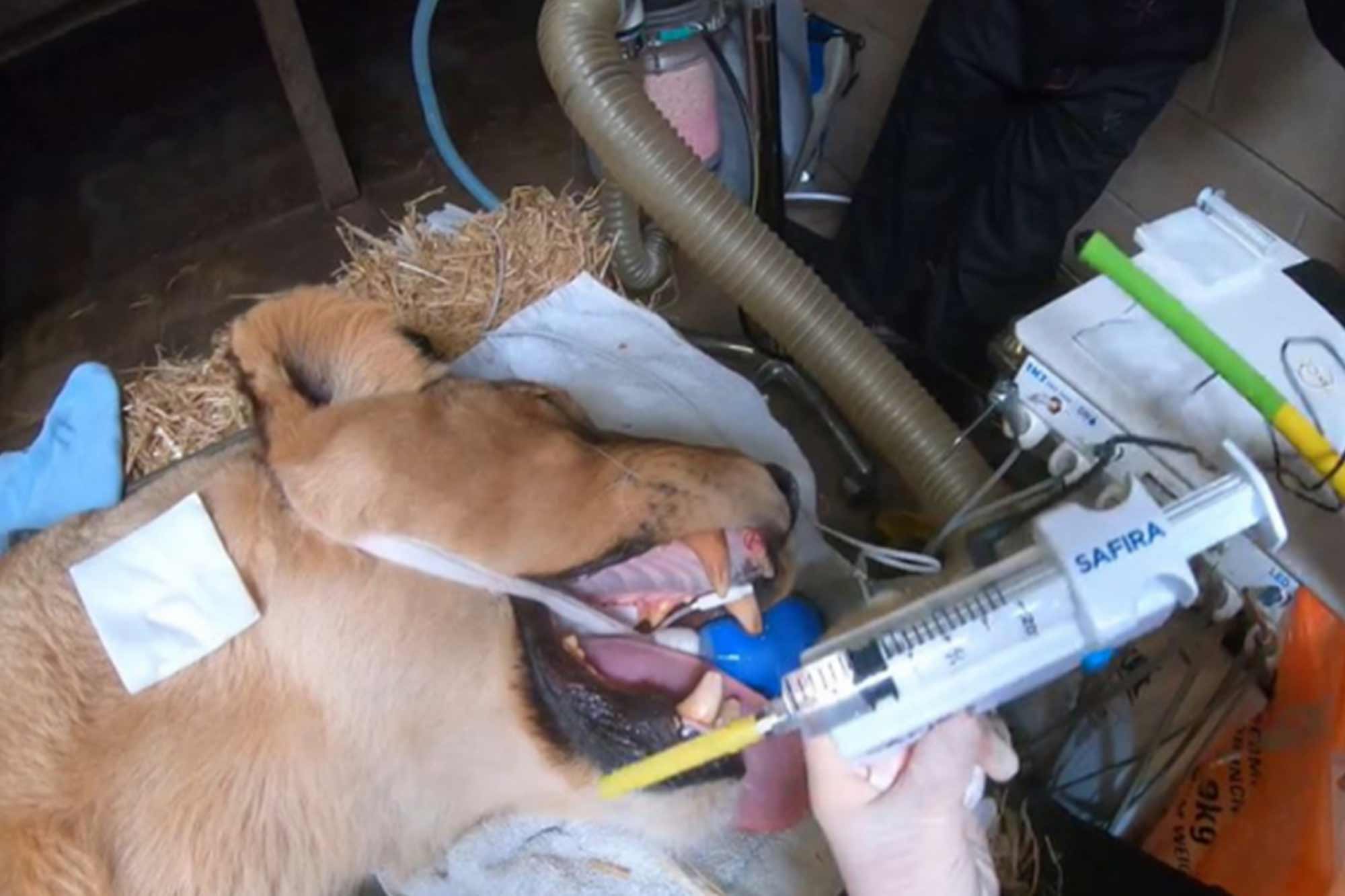
A male lion has become the world’s first animal to undergo dental surgery using an anaesthesia device developed by clinicians in the NHS.
A root canal procedure was carried out on the lion – which lives at Five Sisters Zoo in West Calder, Scotland – by clinical director of Dentalvets, Susan Thorne.
The medical device, Safira, was created and developed by consultant anaesthetists at The Queen Elizabeth Hospital in Norfolk.
Working with medical device company Medovate, the aim was to make regional anaesthesia more autonomous for clinicians – as well as safer for patients.
Regional anaesthesia is a crucial part of animal care, used for several reasons within veterinary medicine and also dental surgery.
Mistreatment at a circus
Adele Copland is operations supervisor at Five Sisters Zoo. She said: ‘Striving to give our rescued lions the best care we can at Five Sisters Zoo, we were happy to try this new way of reducing any mouth discomfort they may have had after their specialist dental treatment.
‘Sadly they arrived here with damaged teeth from their mistreatment at the circus from which they were also confiscated in Belgium.
‘They have bounced back wonderfully after their treatment and are back to normal.’
Reduce risk
Currently, in regional anaesthesia procedures two operators are necessary. This includes a second operator who injects the anaesthesia at the correct pressure level, relying heavily on ‘subjective feel’.
As a result, anaesthetic solutions can be injected at high pressures, which poses a risk to nerve injury.
But the device transforms such regional anaesthesia procedures into a one-person process. It avoids the challenge of communicating with an assistant about subjective pressure feel.
Consequently, this removes the inconsistency of an untrained hand. The device also incorporates a unique built-in safety solution. This limits injection pressure, helping to reduce the risk of nerve injury.
Follow Dentistry.co.uk on Instagram to keep up with all the latest dental news and trends.


